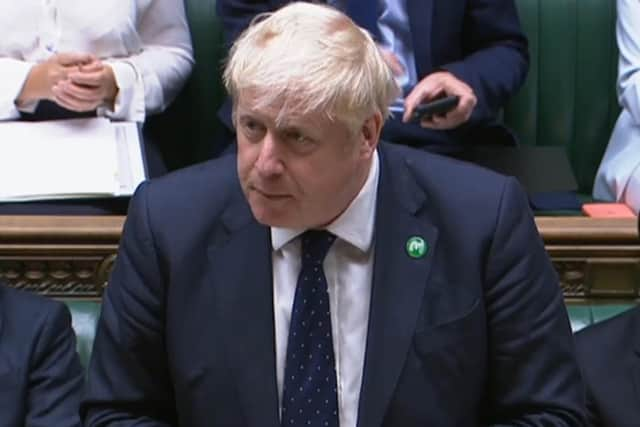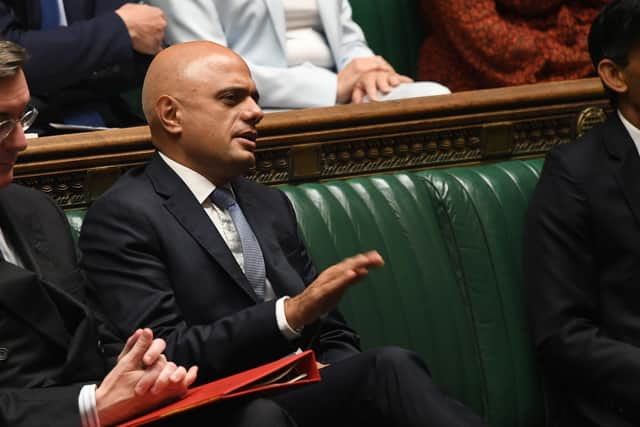Why the National Insurance hike will harm the least well off, it must be scrapped - Sarah Coles
The spring is already going to be an agony of price rises, with every last penny being squeezed from our budgets. The Government shouldn’t be tightening its grip on our finances at a time like this.
A rise of 1.25 basis points doesn’t sound dramatic, but that doesn’t translate into a 1.25 per cent rise in what you pay.
Advertisement
Hide AdAdvertisement
Hide AdSomeone earning £30,000 currently pays £2,452 a year in National Insurance, and the rise would increase it by £256. That’s effectively a rise of over 10 per cent in their National Insurance bill.


The rise hits lower earners hardest, because it kicks in at lower income levels than income tax: you start paying National Insurance as soon as you earn £9,564, whereas you don’t start paying income tax until you earn £12,570.
It also places a heavier burden on lower earnings, because you are set to pay 13.25 per cent on income between the lower threshold and £50,268, but you’ll only pay National Insurance of 3.25 per cent on earnings above this.
It’s also only charged on earned incomes, which means it doesn’t fall equally on all of us. And while from next April, when the charge becomes the separate Health and Social Care Levy, it will apply to earned income above the threshold at any age, until then it’s not paid by people who are working beyond state pension age.


Advertisement
Hide AdAdvertisement
Hide AdThe hike sits oddly with rumours at the end of last year that Rishi Sunak was planning to cut income tax by 2p in the run up to the next election.
It would effectively raise one tax on income while cutting another.
At the time, the Institute for Fiscal Studies called the plan ‘indefensible’, on the grounds that it would benefit people living off income from property portfolios or investments, while the National Insurance hike would hit income from work.
But perhaps most importantly, it was announced in September against a very different background to today.
Advertisement
Hide AdAdvertisement
Hide AdInflation was running at 3.1 per cent, and while the energy price cap was essentially back to where it was in the first few months of the pandemic, we hadn’t had the rise in October, or the threat of much higher price hikes in April.
Now, inflation has hit 5.4 per cent – its highest level for 30 years – and it’s expected to rise again to 6 per cent or more as we head into the spring.
The energy price cap jumped 12 per cent in October and is expected to rise by as much as 50 per cent in April.
We’re already reeling from hikes in the cost of everything from petrol and butter to home repairs, and there’s no sign of price rises slowing yet.
Advertisement
Hide AdAdvertisement
Hide AdThe Bank of England is doing what it can to control inflation, and is increasingly expected to raise interest rates again in early February.
However, the jury is out on how effective it’s going to be when so many of the biggest price rises are dictated by supply problems in the global market.
So the pressure is on for the Government to step in.
It has been working with the energy industry on potential solutions, but at the time of writing we’ve had no concrete decisions.
Ideas have been floated from arranging loans to help spread the cost of price rises to cutting the VAT on energy or halting green tariffs.
Advertisement
Hide AdAdvertisement
Hide AdAnd while we desperately need all the help with these bills that we can get, none of these measures are going to keep a lid on rises entirely.
By contrast, it is completely within the power of officials to shelve the National Insurance rise to protect our finances. There’s no doubt that the NHS and social care need the additional funding, but tax hikes weren’t considered during the peak of the health crisis, and they shouldn’t be brought in at the peak of a cost of living crisis either.
The prospect of rising prices and taxes are exposing so many people to real hardship.
It raises the risk that some will be forced to make decisions between heating and eating that could have dangerous implications for their health.
Advertisement
Hide AdAdvertisement
Hide AdShelving the National Insurance hike won’t solve all their problems at a stroke, but it will avoid making life much worse for many who simply cannot afford for their tax bill to rise at the moment.
We’ve already seen some MPs speak out against the tax rise, and we can expect their number to grow as we edge closer to April.
Meanwhile, across both social media and traditional media, more and more people are starting to question the wisdom of squeezing hundreds of pounds out of people long after every penny has been wrung from their wallets.
We can only hope that our collective voices are heard before it’s too late.
Comment Guidelines
National World encourages reader discussion on our stories. User feedback, insights and back-and-forth exchanges add a rich layer of context to reporting. Please review our Community Guidelines before commenting.
